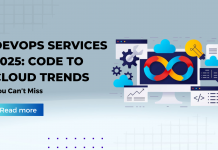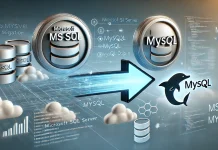Remote work has become a defining aspect of today’s work routine, demanding new tools and approaches to ensure productivity and engagement. Enter smart HR platforms. These technological solutions are quietly transforming how businesses manage their employees from afar. Without exaggeration, smart HR platforms are stepping up as the backbone of any efficient remote working system.
The Rise and Relevance of Remote Work
Remote work is nothing new, but its widespread adoption is. With trends moving towards more people working from their homes, cafes, or co-working spaces, the challenge for companies is clear: how to efficiently manage a dispersed workforce? This isn’t just about keeping tabs on employee output—it’s also about maintaining a sense of culture, communication, and collaboration. That’s where smart HR platforms come into the picture.
Organizations must embrace adaptability, leveraging technology to meet the evolving expectations of employees who crave more flexibility in their work-life balance. The widespread ability to enable work from anywhere means businesses are tapping into a global talent pool and building more diverse teams. This shift challenges companies to innovate their management practices, ensuring that their remote employees stay engaged regardless of where they are situated.
Communication: The Real Deal
One of the greatest challenges in remote work is communication. Email alone isn’t enough, and video calls can often lead to fatigue. Enter smart HR platforms with capabilities to facilitate seamless communication and collaboration. From instant messaging to integrated video conferencing, the days of waiting for a response over email are fading. These platforms promote ongoing dialogue, ensuring that the alignment between team members, regardless of their physical location, remains intact.
Redefining Management with Tech
There’s a simple truth to face: managing remote teams is a demanding task. The problem isn’t only about keeping track of workload, but about fostering an environment where employees are in tune with both their objectives and the company’s values. Smart HR platforms capitalize on technology to help solve this puzzle. They provide a suite of tools for managing communication, tracking performance, and ensuring that remote employees feel as much a part of the organization as their on-site counterparts.
One way companies are enhancing their HR processes is through the integration of AI in managing workforce demands. Implementing solutions like AI in HR allows organizations to automate mundane tasks, expedite operations, and enhance employee engagement through data-informed strategies.
By empowering managers with real-time insights and analytics, these platforms bridge the gap between remote teams and their management. By visualizing work progress and highlighting bottlenecks, teams are equipped with the information needed to make informed decisions swiftly. This not only encourages transparency but also promotes a sense of autonomy and ownership among team members, all of which can noticeably enhance the workflow.
Fostering Employee Engagement
Keeping employees engaged, particularly when working from home, is no small feat. HR platforms are designed to enhance this engagement by creating personalized experiences for employees. Whether it’s through heritage-building exercises, feedback sessions, or continuous skill development programs, the role of HR platforms in fostering a lively and engaging remote work environment is indispensable.
A Secure Approach
Security is paramount, especially when dealing with sensitive employee data. HR platforms place a strong emphasis on data protection. Companies can rest easy knowing that their remote workforce’s information is stored securely, with sophisticated encryption techniques ensuring that data breaches are minimized. No longer do employees have to worry about their information falling into the wrong hands.
Data at the Forefront
The usefulness of data can’t be overstated. With HR platforms focusing on data-driven insights, companies can clearly see what’s working and what’s not. The platforms gauge productivity levels, analyze employee engagement, and identify areas needing attention. They provide leadership with actionable insights, equipping them to create strategies that are responsive to both the needs of the business and the workforce.
Furthermore, data-driven tracking removes ambiguity and provides clear metrics that align employee performance with organizational goals. By identifying key performance indicators, businesses foster a goal-oriented culture, giving employees the clarity and direction they require to thrive remotely. Not only does this approach empower managers, but it also motivates employees by recognizing and celebrating their accomplishments adequately.
Final Words
Smart HR platforms are rapidly becoming the preferred solution to the muddles of remote work. They offer managerial tools that promote productivity, engagement, and effective communication, ensuring businesses can take full advantage of the remote work model. As remote work continues to rise in popularity, relying on these platforms isn’t just a trend—it’s an effective strategy for the future of work. In an era of disruption, embracing smart HR solutions sets companies up for success in their remote work endeavors.







